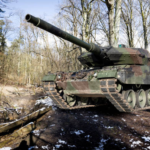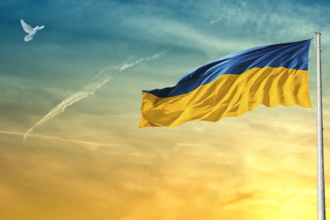Government Faces Pressure to Reverse Restrictive Family Reunification Policy
Reversing recent developments that have made it more difficult for Ukrainians to bring their family to the UK is under increasing pressure on the UK government. Leading migrant organizations have attacked the program as “heartless,” alleging it “tore apart” families and placed many in danger.
Halyna Khovaiko's Struggle from Temporary Work to a Family in Crisis
Originally intending to remain for a few months, Halyna Khovaiko relocated to the UK in December 2021. She left her 12-year-old son, Ihnat, in the care of his grandparents in Volchansk after the Eastern Ukraine plant she worked in closed down and found seasonal employment on a farm in the UK.
Russia started a full-scale invasion of Ukraine, nevertheless, in February 2022. Just five kilometers from the Russian border, Vovchansk was captured, and Halyna discovered she could not get back home. “I have a powerful bond with my son,” Halyna explains via a translator. “Of course, I am missing him. You seem to be more dead than life. I’m just showing up for work, and that is all. You exist, but you do not live.”
A Long-Awaited Reunion Cut Short
Halyna, a single mother, was able to see her son following the Ukrainian army’s autumnal liberation of Vovchansk. She struggled financially and chose to return to the UK for business even during this priceless occasion. She intended to rent a house in Weston-super-Mare so her son could accompany her.
Through the Homes for Ukraine project, Halyna secured a home in January and started the visa application process for her son. Launched in March 2022, this program helped war-torn people by housing them in the UK. However, the government sharply limited eligibility in February. Sponsors were only British or Irish nationals or those with permanent residency in the UK. Halyna and other Ukrainians residing in the UK without permanent residency were thus not qualified to sponsor relatives.
Intensified Conflict and a Dire Situation
These developments came at the same time as rising violence back in Ukraine. Vovchansk was repeatedly bombarded as Russian attacks on it became more frequent. Now fourteen, Halyna’s son had to leave with his grandparents for Kharkiv, a city seventy kilometers distant. Halyna notes, “Every day, there are explosions [where he is]. You turn in for sleep and wonder whether you will wake up in the morning.
Charity Calls for Policy Reversal
Supporting migrants, the NGO Work Rights Centre notes that it has heard from about 200 Ukrainians who are split from relatives trying to bring them to the UK. The organization says the policy has “torn apart” families and calls it “heartless”. “We have seen parents fight for months for a means of bringing their child to the UK,” the organization states. “Others have sadly seen a family member die in Ukraine while they were looking for a sponsor to bring them to the UK.”
The organization is pushing the next administration to undo the earlier policies, thus enabling Ukrainians without permanent status to act as sponsors and bring their families back together. Opposing the amendments while in opposition, Labour attacked them for sending “the wrong message to the people of Ukraine about our willingness to stand with them”.
Personal Impact of Policy Changes
The adjustments startled Nadiia Yashan, a Ukrainian immigrant consultant for the Work Rights Centre. She says that several customers were either ready to sign leases for flats where their family was expected to join them or in the middle of applications. “I was devastated,” she recalls. “If the situation in Ukraine worsened, I had intended to move my mother to the UK. I can no longer be a sponsor as I arrived on a student visa, and I am not entitled to remain in the UK permanently.
Nadiia talks of guilt and worry. “I feel bad; maybe I should have [applied for her to visit the UK] sooner,” she admits. “I’m very concerned; every day, I wonder what if it gets worse and I need her here right away, but I cannot act.”
Ongoing Demand and Bizarre Circumstances
Since the Russian invasion, more than 180,000 individuals have arrived in the UK under the Homes for Ukraine project. The Work Rights Centre notes that demand is still somewhat strong, even if the number of applications has dropped. One parent often comes to the UK first looking for a career and property, then brings over the rest of their family. The organization notes, nevertheless, that locating British sponsors has become ever more challenging.
The former administration defended the modifications by pointing out the requirement of guaranteeing suitable lodging and assistance. The organization notes the irony of a stranger sponsoring a Ukrainian kid to go to the UK when the child’s parents might be unable to.
Limited English-speaking Halyna finds getting a British sponsor for her son difficult. She finds it difficult to see why she requires a sponsor since she already has UK residency rights. She is thinking of moving to a nation where her kid could join her, even though she is trying to settle into the UK with a career and house. “This is not a life because my child is there, and I’m here,” she adds. “I just want to be with my kid.”
US Provides $20bn to Ukraine Funded by Seized Russian Assets








